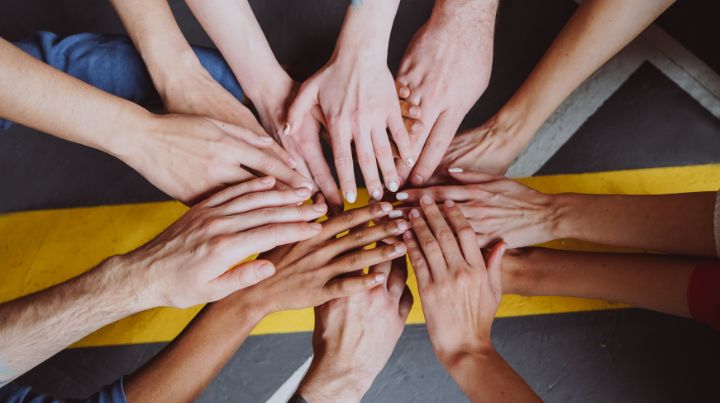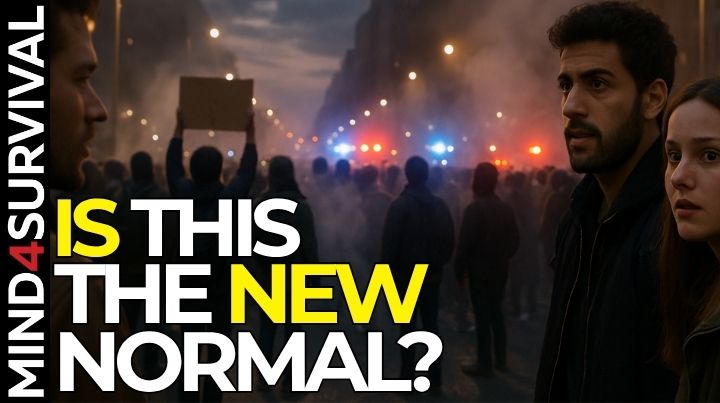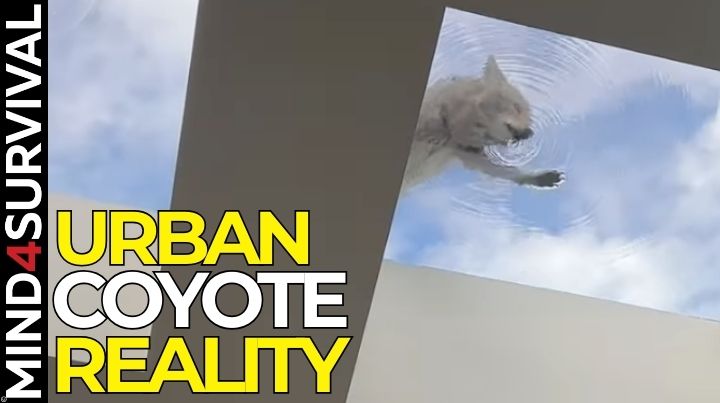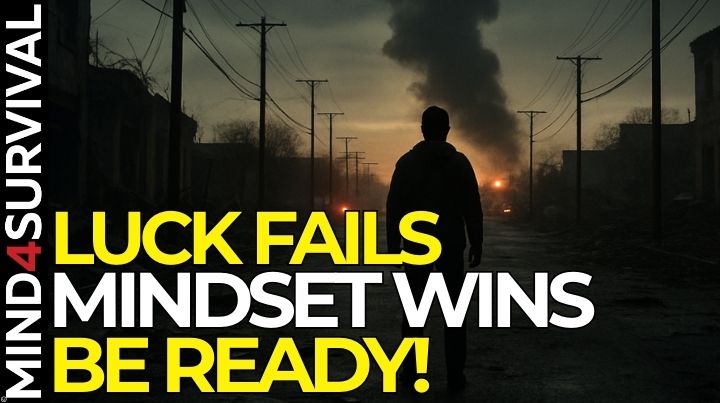157: Building Your Circle of Trust with the Roaming Prepper


Podcast: Play in new window | Download
In this episode with Pete, host of The Roaming Prepper YouTube channel, we discuss what to look for when considering bringing someone into your circle of trust. Adding people to your inner circle can have great upsides and significant downsides for your personal life, job, etc. Therefore, any search for or potential addition to your circle should be brought in slowly and with a mind for the success of you, your family, or your group.
Considerations When Adding Someone to Your Inner Circle
Pete advises that there are several considerations we should examine when thinking about bringing someone into our inner circle. You will want to weigh each of these considerations individually and collectively when determining how far (if at all) you want to let someone into your circles.
1. Are They Compassionate?
One of the most important things you can do is make sure the people you bring into your inner circle are compassionate. Compassion means having an understanding and empathy for the struggles of others. It also means that we treat each other with kindness and respect.
When considering a potential addition to your preparedness network, ask yourself if this person has compassion for their fellow man. Are they quick to lend a helping hand when needed? Do they show consideration for other people's feelings? How do they interact with those who are different from them or have different backgrounds?
Your preparedness organization shouldn't be just about getting through a crisis, but rather it should also be about taking care of each other while getting through it. Finding someone compassionate is essential in ensuring everyone's needs are taken care of during difficult times. People with compassion don't just think of themselves – they think of others, too, and put their well-being first as well.
Compassionate people can helpfully point out different perspectives on any situation, which is especially important when preparing for anything unknown. They provide unique insights that could benefit you and the group during a crisis. They understand patience, self-sacrifice, and resilience – all qualities that will be extremely valuable in times of distress.
Ultimately, having compassion increases our ability to function together and our chances for survival in a crisis. So remember to look within yourself and within others before letting them into your inner circle – is there true compassion present? If so, maybe you've found a great addition to your prepper team.
Pete's Building Your Circle of Trust Video:
2. Are They Insightful
Another key trait that you should be looking for is insightfulness. People with insight can think beyond the surface and make insightful observations about any situation.
An insightful person can look at a problem from many angles and develop creative solutions that may not have been previously considered. They are less likely to jump to conclusions, preferring indirect reasoning and careful analysis over rash decisions or snap judgments. They also have strong listening skills. And, they don't just hear what people are saying but can pick up on subtle nuances in conversations and understand how everyone involved feels.
Insightful people can be excellent problem-solvers, which is an invaluable asset in a time of crisis. When faced with uncertain situations or volatile environments, they can assess the risks and make intelligent decisions quickly and calmly. Having someone with this mental aptitude around in times of distress could potentially mean the difference between life and death for your prepper group.
In general, it's essential to look within yourself and within others before letting them into your inner circle – do they possess insight? If so, you've likely brought in an individual who will help protect you from danger and contribute valuable perspectives to your team during tough times. Insightful people are invaluable members of any prepper team – so be sure to give them due consideration when making additions.
3. How They Treat Others
Before bringing anyone into your inner circle or group, evaluating how they treat others is essential. This is not only indicative of the person's character but also essential in ensuring that everyone in the group can work together harmoniously during times of crisis.
Signs of Respect
Look for signs that a potential candidate shows respect for those around them. Do they listen when somebody else is speaking? Are they willing to help out when asked? Do they show empathy for people from different walks of life? Are they mindful of their words and actions?
How someone behaves towards others often reveals how much value they place on maintaining a peaceful atmosphere and how committed they will be to following group rules or procedures.
Someone who respects their peers is more likely to abide by any set expectations and help keep the group functioning efficiently during an emergency. Additionally, having people with strong interpersonal skills gives the team an overall sense of unity, which can go a long way in motivating everyone to do their best work collectively.
Assessing how someone treats others is critical in creating a cohesive prepper team. When evaluating a potential addition to your inner circle, ask yourself if this person truly values the positive relationships among each other and if they can maintain decorum even under duress.
4. Blood is Thicker Than Water (Not Always)
The phrase “blood is thicker than water” is often associated with the idea that family relationships take precedence over all else, but this isn't necessarily true. Yes, having close friends or family members in your inner circle of trust can result in a tighter bond and trust between everyone involved. However, it doesn't guarantee the behavior necessary to ensure the safety of you, your family, and other loved ones.
The Bottom Line About Building Your Circle of Trust
In the end, the importance of bringing people into your circle of trust is no small thing. The people who end up closest to you are the ones you will most likely depend on when times are hard. As such, it's essential to build a foundation of trust over time—a trust based on compassion, insight, and the treatment of others.
What are some of the “must-haves” and pitfalls you've experienced when building your circle of trust? Tell us in the comments below.
Additional Resources:
- How to Build Your Preparedness Community
- 107: Prepping Groups or Going It Alone – Which Is Best?
- A Single Mom’s Perspective on Prepping (2022)
Stay safe,

Related Articles
FREE Guide
Read the Best Seller
Join Mind4Survival
Stay informed by joining the Mind4Survival! 100% Secure! 0% Spam!
Affiliate Disclosure...
Mind4Survival is a free, reader supported information resource. If you make a purchase through our link, we may, at no cost to your, receive an affiliate commission.
Do You Want To Be Ready No Matter What?

Download our free 39-page guide with interactive, 7-Day Emergency Kit Checklist and take the first step toward real preparedness.
- Know exactly where to start.
- Save time and money.
- How-to build a complete Basic Emergency Kit.
- Level up your safety and security.
Join Mind4Survival
Stay informed by joining the Mind4Survival! 100% Secure! 0% Spam!







4. Blood is Thicker Than Water (Not Always)
Especially when Grandma’s will was read, “where did the silverware set go?” Asked my uncle.